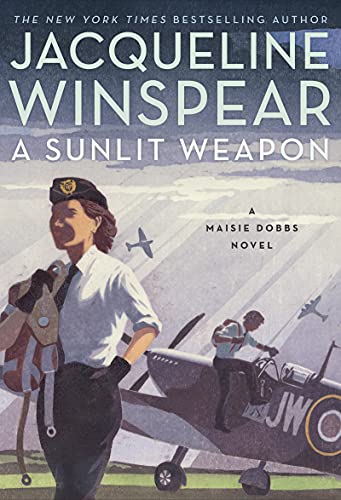“You only have to visit a battlefield long after a war has ended, to know that places are never quite the same following a tragedy.”
I got seriously into Jacqueline Winspear’s Maisie Dobbs books during the darkest days of lockdown, and now,

alas, I am hooked, even though at 17 installments in the series, it’s not quite as fresh as it was. But I like Maisie and her desire to do right by the survivors as she investigates the murders: this series takes seriously the notion that it’s never just one person who suffers when there is a murder, but a ripple of heartache and pain that radiates outwards.
This is also an installment that manages to feel timely without being too forced. A female pilot for the Air Transport Auxiliary (a WWII unit that ferried planes from airfield to airfield, offering women rare and coveted wartime flying opportunities) hires Maisie after two mysterious plane crashes that may have been foul play, and in both a pilot died (the client’s fiance in one case, her close friend in another). At the same time, Maisie is looking into the disappearance of an African-American soldier who, once found, is set up for the disappearance of a white soldier and potentially for involvement in a plot against Eleanor Roosevelt. The C-plot, meanwhile, is the discrimination that Dobbs’s adopted, not-quite-white-passing daughter Anna is facing in school, as well as Dobbs’s husband’s desire to become Anna’s adoptive father legally, and not merely in spirit. It’s a nice touch to explore the way American soldiers were, once off-base, often freed from the restrictions of racial segregation they knew in America, but Anna’s experiences also help Winspear avoid valorizing the UK as a place free of racial prejudice.
There are some moments that somewhat strain credulity, but Maisie’s desire to do right and to protect an underdog–one facing potential death should she fail–helps carry the story, as does Maisie’s fairly-levelheaded persona. Also, I found out that the books have at last been optioned for adaptation, and perhaps the Foyle’s War-shaped hole in my heart will now be filled again.
